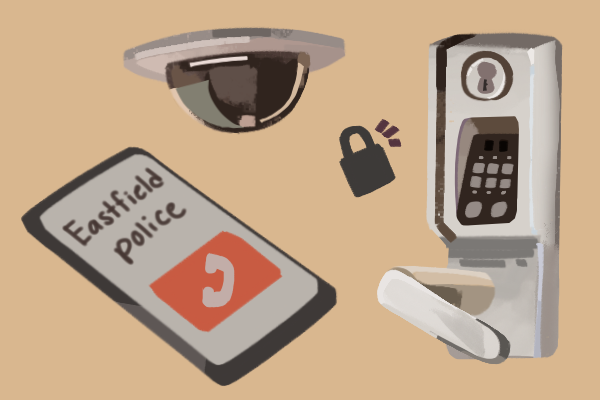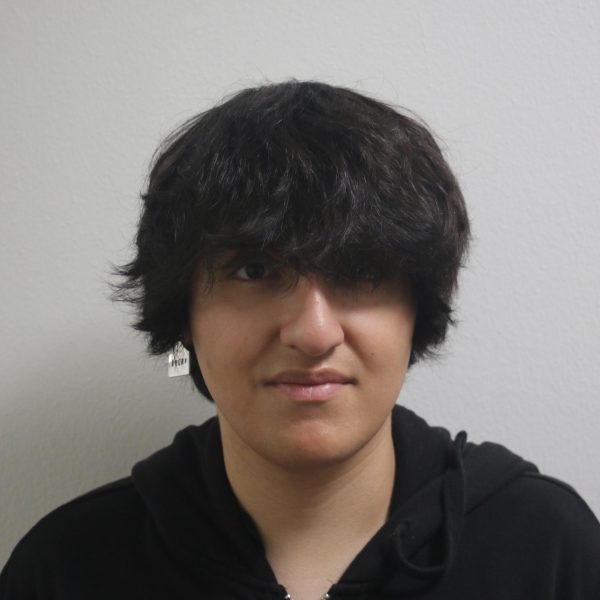Dallas College upgrading campus safety measures
September 19, 2022
Enhancing security is on Dallas College’s agenda following increased concerns regarding campus safety.
New measures include additional cameras, additional communication tools in RAVE and Guardian apps, locational assessments to find vulnerabilities, panic buttons in classrooms and offices, and the ability to lock doors remotely.
Concern for campus safety stemming from nationwide gun violence was addressed during the June 7 Board of Trustees meeting.
“I want you to know that your safety and that of the entire Dallas College are top priority,” Dallas College Chancellor Justin Lonon said in an email sent to faculty after the meeting.
The meeting focused on ensuring campus police and faculty have the resources to act in the event of a crisis, as well as creating preventative measures. Existing measures such as campus police patrols and trainings were reiterated by the college.
“Our police officers are trained and prepared in how to address an active shooter situation and any other situations that occur on our campuses,” Assistant Chief of Police Herbert Ashford said.
Since the Robb Elementary School shooting on May 24 in Uvalde, school safety has become a hot topic in the education sector.
“A [situation] hasn’t happened again, but I can’t tell how things would go – that’s a what-if,” English professor Larissa Pierce said. “We always want to assume how things are going to go.”
Dallas College will soon require students and faculty to watch a safety training video as part of orientation. Eastfield faculty already receive training, but some haven’t received in-person training in years.
“We do training every semester, but it’s virtual,” Pierce said. “Before all this virtual stuff, we used to have someone come in and we would practice certain things.”
Pierce has forgotten the last time she received in-person training but estimates it to be four years.
“I don’t think any virtual training does enough because everyone is not a virtual learner,” Pierce said.
Pierce wants Dallas College to provide in-person training for teachers, but she praises panic buttons and remote locks as good first steps for improving campus safety.
Safety videos and lectures are standard practice for biology professor Tammy Oliver, but most of her safety concerns were regarding students in situations she was unprepared for. The previous time she received training was before the pandemic.
“We do need some training – we need to know what [mental health] resources we can refer those students to,” Oliver said.
Dallas College often creates awareness for mental health by promoting the current resources on campus such as counseling and the Student Care Network.
A 2022 study from NPR found that Texas is currently the lowest-ranking state for mental health.
Campus security often repeats the phrase “see something, say something,” expressing the importance of students being vigilant about suspicious activity. Lonon has said that communication is key to creating a safe campus.
Dallas College is also in the process of expanding communication tools between teachers and campus security.
Among changes to campus safety communication is the installation of panic buttons in offices and classrooms.
“Since they’ve installed panic buttons in each classroom, I feel more secure,” Oliver said.
Previously, when an incident occurred on campus, professors had to call police. Panic buttons remove the middleman by alerting police to an exact location.
“I had to get accustomed to my new phone and I was trying to look at my call log, but I accidentally pushed the panic button,” Oliver said. “And sure enough, maybe a minute later, there’s two police officers at my door.”
Enhanced safety measures began implementation in the summer and followed into the fall semester. Although Eastfield is an open campus, there has been no expressed interest in restricting accessibility.
“There’s a very big police department here,” art major Trinity Shanks said. “I’m sure we’ll be safe because there’s most likely a bunch of cops around the corner.” New students such as Shanks were impressed with Eastfield’s security presence.
Older students such as science major Jesus Guarra are vocal about their support.
“[Dallas College] is doing great right now,” Guerra said. “I don’t think they need to improve much. They just need to be more vocal about who we can go to.”
But some on campus are concerned about safety issues resulting from the state’s lax approach to gun control. A senate bill signed in 2020 permits license-to-carry holders to carry concealed firearms in Texas colleges.
“It doesn’t mean that people in the community are always threats because sometimes it’s the students,” Pierce said. “How many students come with a gun every day? I’ve seen some of my students with guns.”
Dallas College doesn’t require LTC holders to register with the campus, and the campus lacks the jurisdiction to make holders disclose firearm information. According to the Dallas College FAQ on concealed carry, the administration cannot create a rule to ban all handguns on campus.
“The college district is committed to protecting the health and safety of the community, while respecting the rights of its individual members,” the policy reads. “It is the intent of the Board to comply with the law without compromising the mission, purpose, or environment of the college.”
The most the administration can do is discuss regulations with students, faculty and staff, which was part of the process behind the new safety measures.
In his email, Lonon expressed gratitude for the safety concerns and encourages people to provide feedback. Campus police will actively communicate with faculty and students about developments in campus safety.
“The police department and college as a whole continuously evaluate college safety and makes the appropriate adjustments as necessary,” Ashford said.




